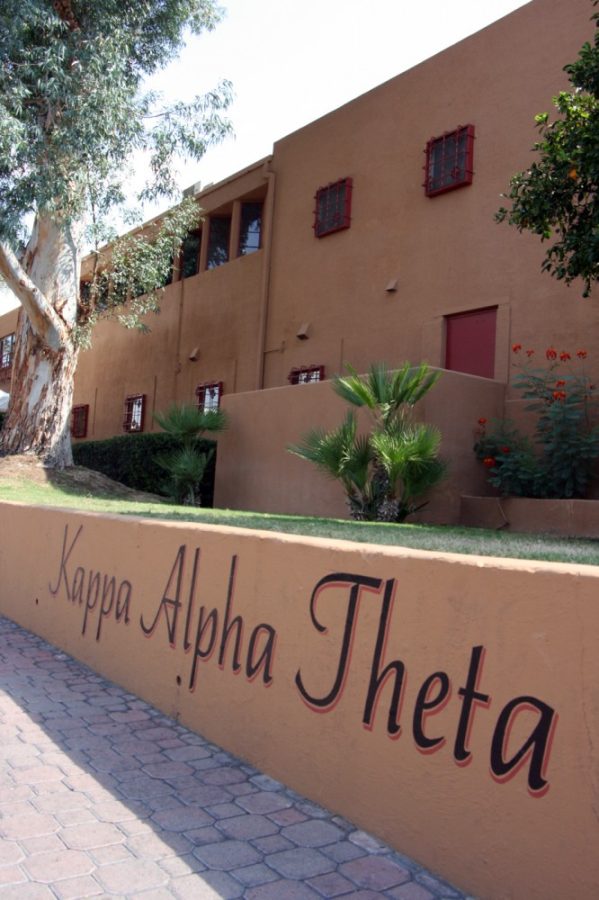Several high-profile alcohol-related incidents have led the Arizona Board of Regents to reach out to Greek Life at the three state universities.
The board sent out a letter to the state universities in Arizona and the national headquarters of 70 fraternities and sororities discussing its concerns and intentions regarding alcohol-related incidents. These included injuries, suicide, sexual assault and fatalities that have taken place and how the board hopes to stop these kinds of events from recurring.
“I think that all of the university administrators at all three institutions want students to be safe and to be able to get involved — in any club or organization on campus — and to do that without any fear of putting themselves in any harm’s way or risk,” said Johanne Ives, assistant dean of Fraternity and Sorority Programs. “So I would say we share concerns in making sure students are safe.”
Since 2012, Arizona’s three public universities have all had problems regrading alcohol use in fraternities and sororities on campus. In a recent incident, a member from the Arizona State University chapter of Sigma Alpha Epsilon was found dead. The autopsy report said he drowned but that he also had a blood alcohol concentration of .28.
“I don’t know what to attribute it to,” said Rick Myers, chairman of the board of regents. “If it is because we have more students, if it’s because things are happening in our society and certain things are more accepted then they used to be. It could be many reasons, and that’s why we reached out.”
Despite the problems seen among the fraternities and sororities at the three state universities, the UA has not had an increase in alcohol-related incidents, according to Ives.
Myers said the board of regents understands that not all fraternities and sororities are responsible for these incidents and does not want to single them out.
“We’re looking for this to be a positive experience,” Myers said. “This isn’t meant to single people out for problems, it’s meant to figure out how … we all work together to create a more positive environment.”
The letter requested that Greek Life leaders provide the board with a response outlining how they would prevent and deal with safety issues within their organizations.
Many of the fraternities and sororities that were contacted have responded, while others have asked for an extension until the end of the month, Myers said. At the board of regents’ meeting in September, the board will discuss the findings.
“We reached out the fraternities and sororities because our feeling is they have the same desire we have,” Myers said, “which is to create a better experience for young people so they can be successful in their university process.”
In order to assist the board of regents and the fraternities and sororities at the UA, Ives said Greek Life staff compiled information, including how they work with the fraternities and sororities concerning safety, accountability, internal standards board processes, the greek standards board and educational programs.
Macaulay Christian, president of Phi Delta Theta, said he would not have joined his organization had its members tried to haze him.
“I would have dropped immediately and not put up with that kind of humiliation,” Christian said. “The men of Phi Delta Theta presented me with the qualities I found most important. This had little to do with any parties or social events. Far more important were the growth opportunities presented to me and the character of the men who made up the organization.”
Follow him at Twitter.com/fgalvan35









